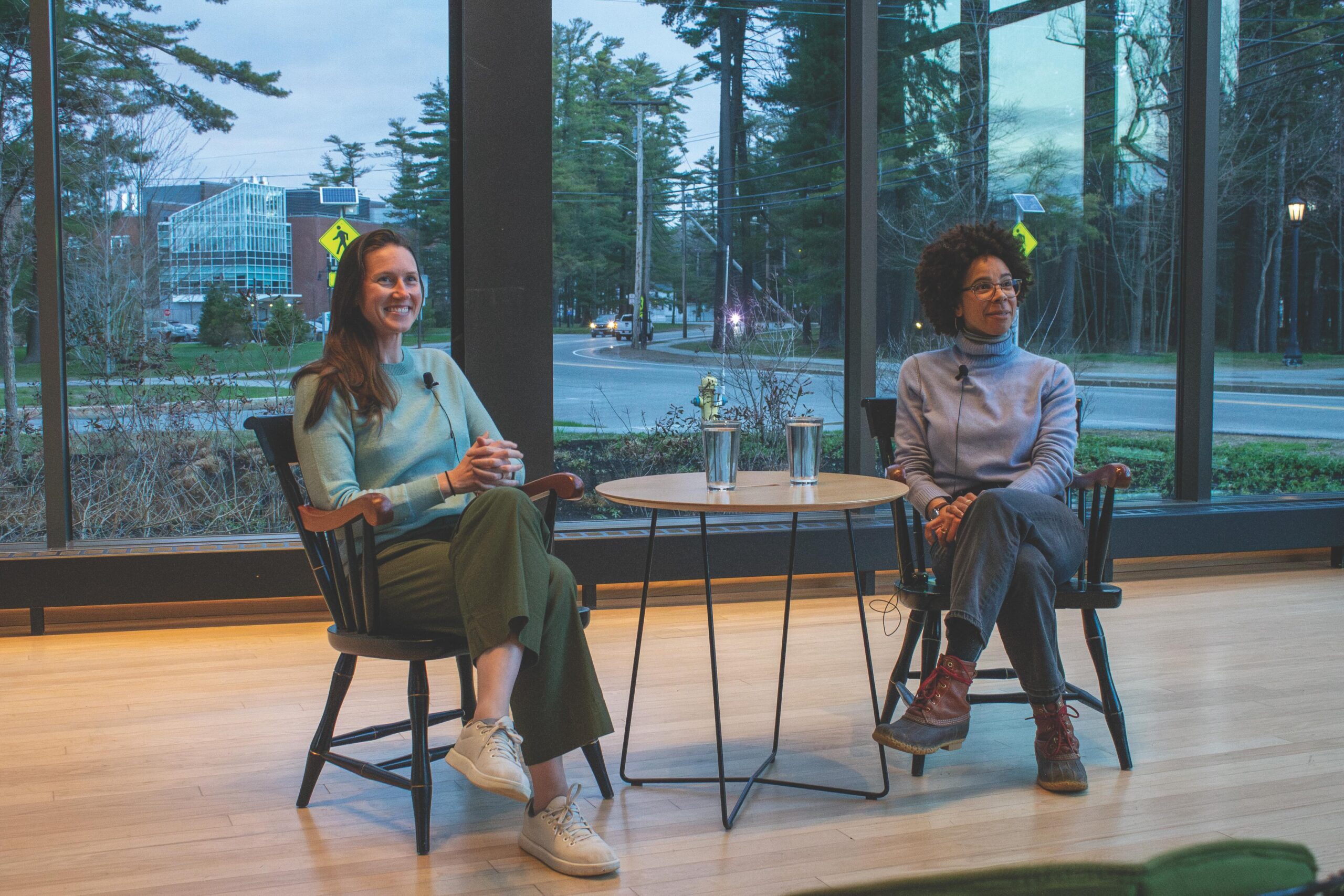Maggie Thomas discusses Biden’s climate policy, influence of climate voters
May 3, 2024
 Lilli Frank
Lilli FrankOn Wednesday night, Roux Distinguished Scholar Ayana Elizabeth Johnson hosted a conversation with Maggie Thomas, special assistant to the president for climate, in the Roux Lantern. Thomas and Johnson provided insight on climate politics, factors that drive climate policy change and the challenges of balancing what changes are practical with what climate voters demand.
Thomas made a name for herself developing a climate-based campaign platform for Washington governor Jay Inslee in 2020 to appeal to a newly emerging bloc of “climate voters,” who consider climate change as the top issue. She explained that this platform brought more aggressive actions into the conversation, and now the Biden administration must show these voters that it similarly prioritizes climate policy.
“A primary part of the reason why the president has been as bold and ambitious as has been able to be is because there is that demand signal. There’s that clear call and literal call from young people and climate activists around the country,” Thomas said.
This rise in climate activism shifts what political scientists call the Overton Window—the range of policy changes that are politically feasible based on what all sides are willing to accept. While Thomas affirmed the power of protest to advance policies, she also pushed back against the idea that loud activism is always helpful.
“There are some cases where maybe actually we just want to quietly do the thing,” Thomas said. “We want to get it done, and we want to make good progress and move on because we don’t want to draw a ton of attention because that could make it harder to do or we can bring a bunch more lawsuits.”
This semester, Johnson is teaching a course called “Communicating Climate Change” in which students learn to navigate communication challenges when developing and implementing various strategies for catalyzing climate action. Thomas says she has learned a lot in her role that was useful for students in this class.
“One of the things that has become really apparent to me working in this job is how important it is to have a lot of different kinds of communicators. It cannot be our job and our job alone, in my office in the White House, to tell the story of the Biden climate agenda,” Thomas said. “And it’s also not the way that most people like to consume information and news. You want to hear about something cool from your friend at dinner. You don’t want to have to go read the New York Times every day.”
To measure the public’s awareness of the White House’s climate successes, Johnson asked the audience to raise their hand if they knew of initiatives that she listed. Though many knew about one particular term, the Willow Project, not many knew about the liquefied natural gas export pause, the new rules for coal plant emissions or the American Climate Corps. The administration’s approval of the Willow Project, an oil drilling project in Northern Alaska, sparked a viral negative press cycle that drowned out many of the administration’s successes. Many doubted the administration’s climate efforts as a result, even though Thomas argued it was the best environmental decision given how fighting hard against drilling previously had only made things worse.
Thomas also discussed one major victory that she worked on: the American Climate Corps, modeled after the New Deal-era Civilian Conservation Corps but specifically for environmental jobs. The 30 billion dollars required for the initiative were hard to secure and were removed from the Inflation Reduction Act at the last moment.
“That’s kind of part of being in the government, the courts say no to you, Congress says no to you, somebody else says no to you. And you can’t just back down when somebody says no and so we went back to the drawing board and figured out a way to get a little bit more creative and pieced together a whole bunch of existing programs,” Thomas said.
Professor of Physics Mark Battle thought that the insights Thomas provided into careers in climate policy made the talk relevant to the Bowdoin student body.
“I think that it’s a terrific educational opportunity to learn what possibilities are out there for you, but it also is really valuable to see the challenges of effecting change on the issue of climate change and recognize the complications and still be energized to push forward and try to effect change,” Battle said.
Battle and Talia Mirel ’24 both said their biggest takeaway from the talk was a clearer view of the actual progress the Biden administration is making.
“One of the things that was emphasized is that the Biden administration has done a lot of great climate policy work,” Mirel said. “And yes, it’s easy to be critical, and there’s always more work to be done, which is second nature, but it’s also important to acknowledge the positive action that has been taken and their impacts.”

Comments
Before submitting a comment, please review our comment policy. Some key points from the policy: